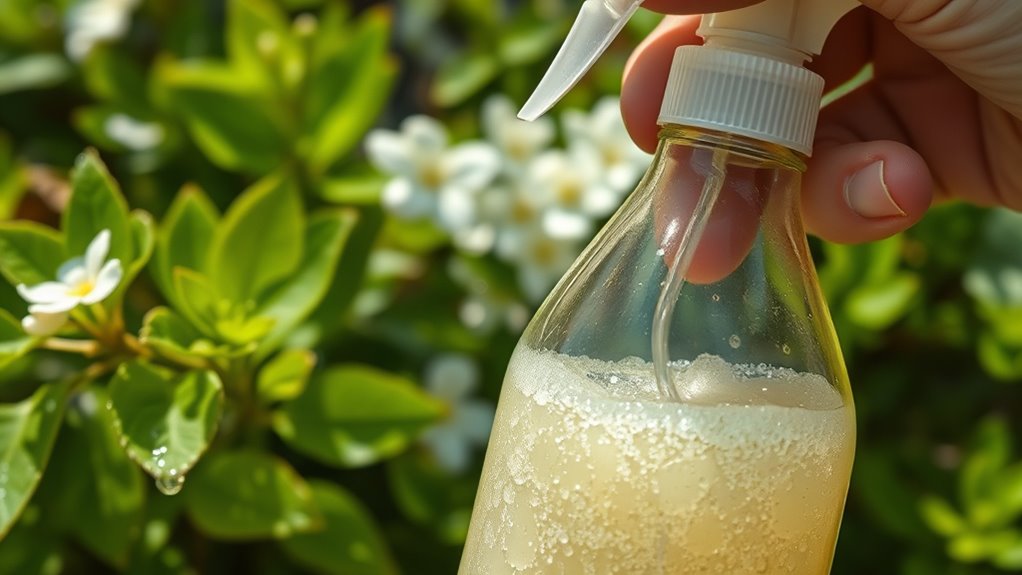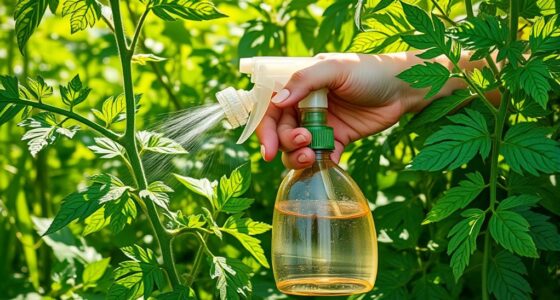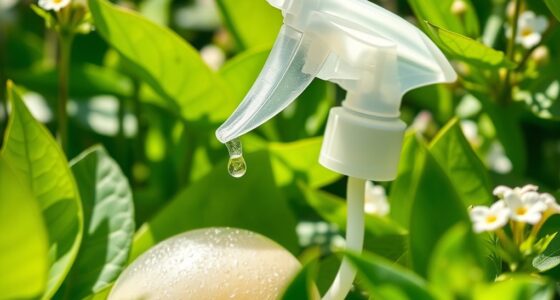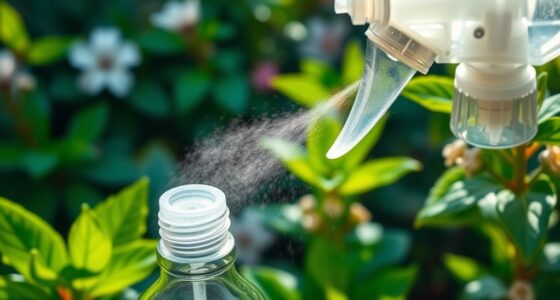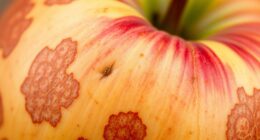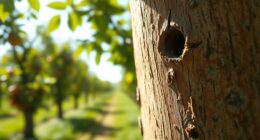To make a DIY soap spray for your garden, mix a few tablespoons of pure liquid soap with a gallon of water, then shake well. Spray it directly onto affected plants, covering both tops and undersides of leaves to target pests like aphids and mites. Apply every few days and test it on a small area first. This eco-friendly method keeps pests in check naturally—keep going to discover more tips for successful pest control.
Key Takeaways
- Soap sprays use simple soap solutions to suffocate and dehydrate soft-bodied garden pests like aphids and whiteflies.
- Mix a few tablespoons of biodegradable soap with one gallon of water, then shake well before application.
- Spray thoroughly on both sides of leaves, applying every few days for effective pest control.
- These DIY sprays are eco-friendly, safe for beneficial insects, pets, and humans, and support organic gardening.
- Always test on a small plant area first and avoid over-application to prevent potential damage.
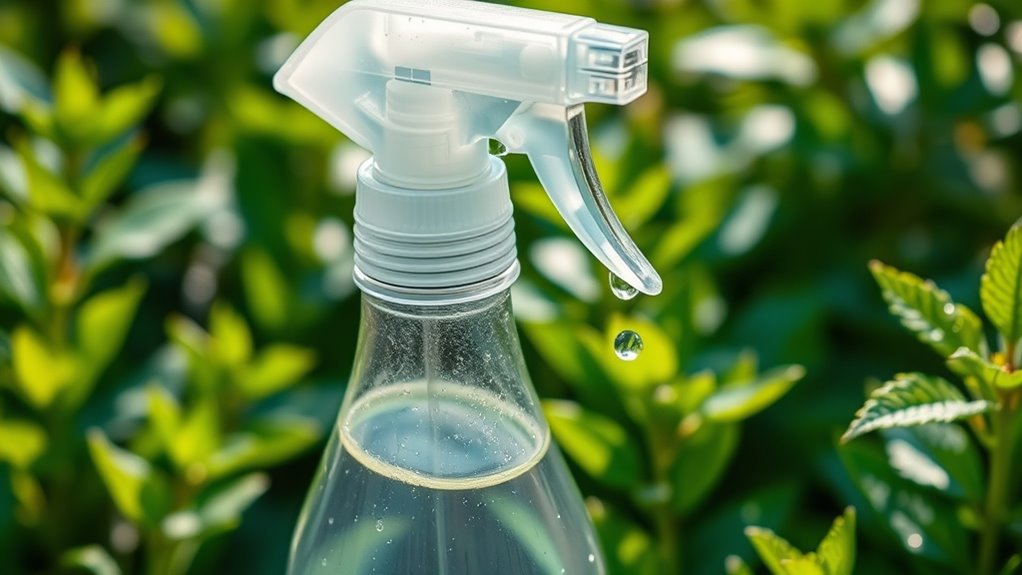
Making your own natural insecticide with soap sprays is an effective and eco-friendly way to protect your garden from pests. Soap sprays work by suffocating soft-bodied insects like aphids, spider mites, and whiteflies, disrupting their cell membranes and causing dehydration. To create a simple solution, mix a few tablespoons of liquid soap—preferably pure castile soap or other biodegradable options—in a gallon of water. Shake well and spray directly onto affected plants, covering both the tops and undersides of leaves for maximum effectiveness. This DIY method not only helps control pests but also minimizes chemical runoff, making it safe for beneficial insects, pets, and your family. Regular application every few days can keep pest populations in check and promote healthier, thriving plants. Remember to test your spray on a small area first to ensure it doesn’t harm your plants. Using DIY natural insecticide is a sustainable way to maintain a healthy garden without relying on harsh chemicals.
Frequently Asked Questions
How Long Does a Soap Spray Last Once Applied?
Once you apply a soap spray, it typically lasts about 7 to 10 days. Its chemical stability can be affected by environmental factors like rain, humidity, and sunlight, which can wash away or break down the solution. To maximize effectiveness, you should reapply after heavy rain or if you notice pests returning. Regular application helps maintain the insecticide’s protective barrier and keeps your garden healthier.
Can Soap Sprays Harm Beneficial Insects in My Garden?
Imagine your garden as a delicate symphony, where beneficial insects are the silent conductors. Soap spray impact can sometimes harm these helpful creatures if used excessively or incorrectly. You should target pests carefully and avoid blanket spraying to protect your beneficial insects. By doing so, you preserve the harmony of your garden, ensuring your natural pest control remains balanced and effective without disrupting the crucial role beneficial insects play.
Are There Specific Soap Brands Recommended for DIY Sprays?
When choosing soap brands for DIY sprays, you should look for organic brands or simple dish soap options. Avoid harsh chemicals and fragrances that can harm plants or beneficial insects. Brands like Dr. Bronner’s, castile soap, or pure, unscented dish soaps are excellent choices. These options are gentle yet effective for creating natural insecticides, ensuring you protect your garden’s ecosystem while tackling pests safely.
How Often Should I Reapply Soap Sprays for Maximum Effectiveness?
You should reapply soap sprays every 7 to 10 days for maximum effectiveness, but this depends on weather conditions. If it’s rainy or humid, increase the application frequency since soap sprays can wash away or become less effective. On dry, sunny days, you might space out applications a bit. Keep an eye on your plants and pests, adjusting the application frequency based on their response and weather considerations.
Can Soap Sprays Be Used on Edible Plants Safely?
You can use soap sprays on edible plants safely when you pay attention to soap spray ingredients. Look for pure, biodegradable soap without added fragrances or chemicals, as these can affect edible plant safety. Always test a small area first and rinse thoroughly before harvesting. By choosing the right ingredients and applying properly, you safeguard your plants and ensure they remain safe for consumption.
Conclusion
By now, you’re equipped to craft your own soap spray and keep pests at bay naturally. Remember, patience and consistency are key—like a good alchemist, you’ll see results over time. Don’t forget to test a small patch first, ensuring your garden’s delicate balance remains intact. With this simple, ancient remedy, you can protect your plants without resorting to harsh chemicals. Embrace your newfound knowledge and enjoy a thriving, pest-free garden—truly, a gardener’s art in the modern age.
